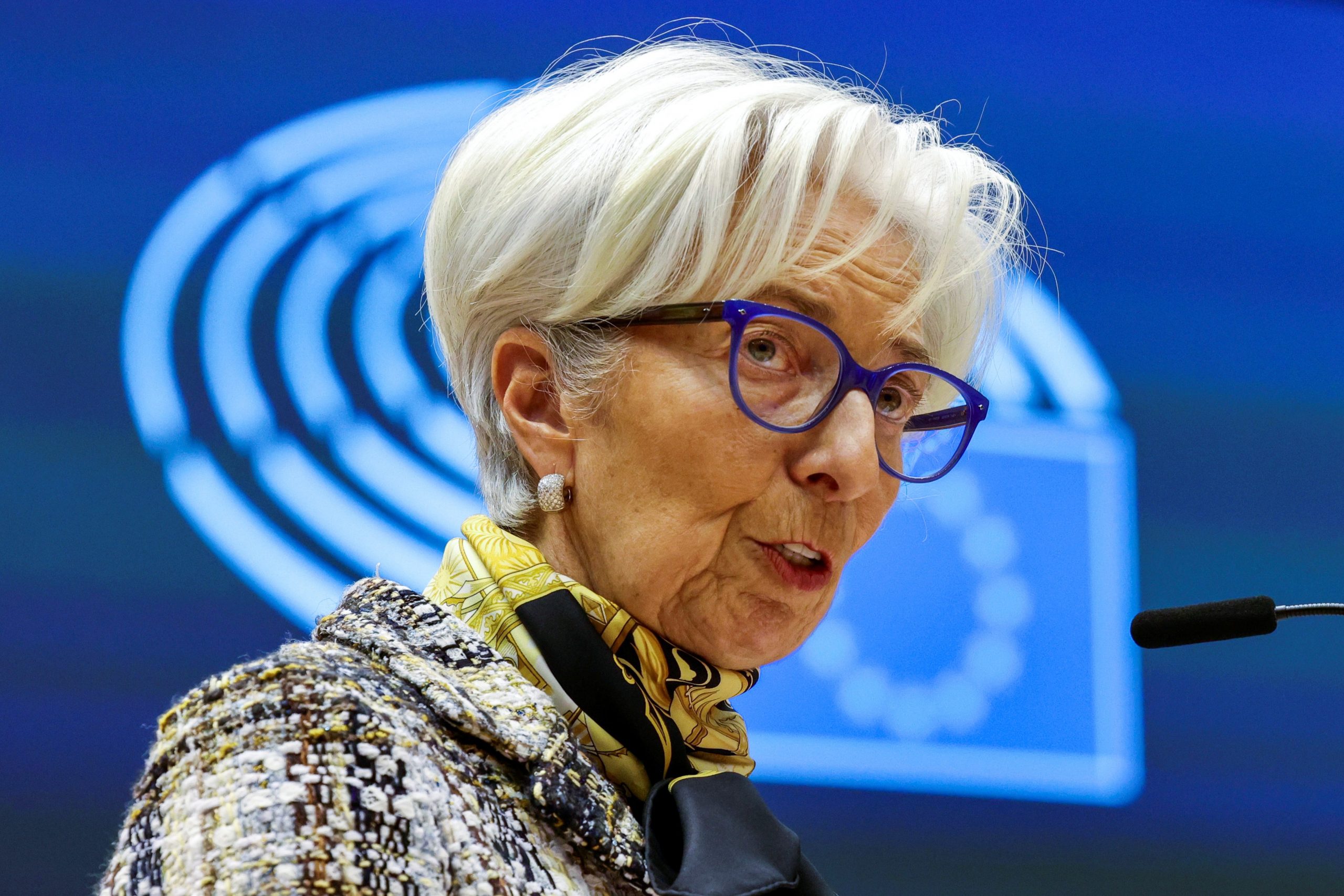
lawmakers at the European Parliament in Brussels.
Olivier Matthys/Pool via Reuters
- ECB president Christine Lagarde said it was “very unlikely” central banks would soon hold bitcoin.
- “I would say it’s out of the question,” Lagarde said on a call hosted by The Economist.
- Most European countries will require stimulus through 2021, she said.
- Visit the Business section of Insider for more stories.
European Central Bank President Christine Lagarde on Wednesday said she didn’t consider bitcoin to be a real currency, adding that central banks won’t be holding it as reserve currency anytime soon.
“It’s very unlikely – I would say it’s out of the question,” Lagarde said during a conference call hosted by The Economist.
Wednesday’s comments were just the latest from Lagarde on bitcoin. In January, she called for more regulation on the cryptocurrency, saying bitcoin has been used for some “funny business,” including money laundering, as Reuters reported.
That doesn’t mean there’s no space for digital currency in the future, however. She said the pandemic has pushed economies toward faster digital adoption, and there may be a digital euro currency ready within about four years.
Lagarde's comments came as part of a wide-ranging discussion about economic recovery as the world slowly emerges from the coronavirus pandemic.
"All that is, sort of, a big series of clouds over our heads - and they'll clear one by one, hopefully," she said.
Lagarde spoke in favor of stimulus measures being taken in the US, and in Europe, where she expects most countries to need stimulus into 2022. She urged member states to continue fiscal spending to avoid long-term downturns.
"Both member states, and Europe at large, should continue to provide fiscal support to our economies at least throughout 2021, and probably beyond," Lagarde said.
She also said she wasn't worried about inflation, which she didn't expect to hit pre-pandemic levels until about 2023. Lagarde cautioned against comparing fiscal stimulus in Europe with the massive $1.9 trillion stimulus that President Joe Biden is proposing in the US.
"Let's not forget that we have two layers in this part of the world - where you have the national layer, then the regional, pan-European layer," she said.
Dit artikel is oorspronkelijk verschenen op z24.nl